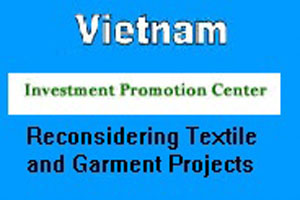
Vietnam local authorities rethinking to consider textile and garment projects
YarnsandFibers News Bureau 2015-05-13 13:00:00 – VietnamVietnam's Da Nang City’s Investment Promotion Center though saw a sharp decline of 45 percent in foreign direct investment (FDI) capital in the first three months of the year still turned down two foreign invested projects capitalized at hundreds of millions of dollars on the grounds that they may cause environmental problems.
Both of the projects were in the textile, dying and garment sector, including a $200 million project registered by an investor from Hong Kong and another registered by an investor from South Korea.
Da Nang City has one of the most beautiful beaches in the planet, is focusing on developing a tourism industry and is targeting sustainable development. It has decided to attract only projects using high and clean technologies.
Da Nang is not alone. Ba Ria-Vung Tau and Dong Nai also announced they are not encouraging projects in labor-intensive and polluting industries.
Even Hai Duong, a northern province does not have big advantages to attract investors yet has decided to stop licensing projects in six business fields, including dyeing and textiles.
While admitting that local authorities have every reason to refuse dyeing and textile projects, some analysts have expressed their worries about the implementation of Vietnam’s plan on developing the textile & garment industry to take full advantage of the TPP (Trans Pacific Partnership) Agreement.
HCM City, Binh Duong and Dong Nai provinces were the first three localities which stated that they would not encourage dyeing and textile investment projects, which may cause pollution to the local environment. However, a local newspaper quoting sources saying that the local authorities are now rethinking their decisions.
Dong Nai provincial authorities have listed dyeing & textile as conditional business field, while the investment projects in the field will be licensed if investors can satisfy the requirements on waste treatment.
Binh Duong will also consider licensing dyeing & textile projects because it has developed a large industrial zone with good infrastructure ready to receive investments.
In HCM City, according to Tran Viet Ha from the HCM City Industrial Zone (IZ) and Export Processing Zone Management Board (Hepza), the agency has instructed some IZs such as Dong Nam and Hiep Phuoc to receive key textile and garment projects.
However, Ha emphasized that Hepza only accepts large-scale projects using modern technologies, not garment outsourcing.
The city’s authorities predict that the global textile and garment market will grow rapidly. Meanwhile, the TPP trade agreement will bring opportunities to develop Vietnam’s textile and garment industry.
Market Intelligence
Ask for free sample Report

experience
Customer Base
dedicated team
Countries Served Worldwide









